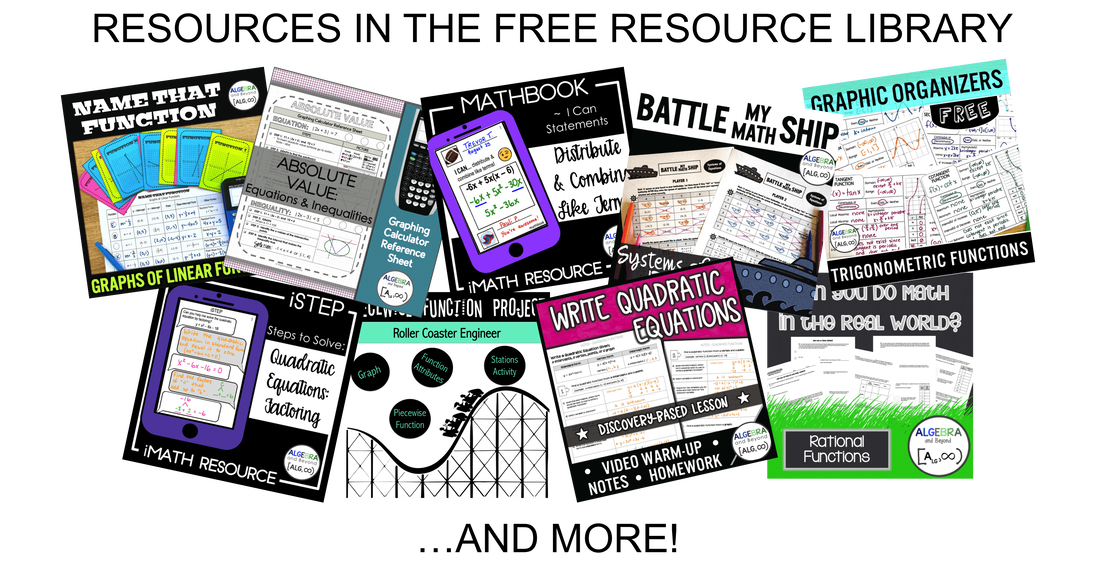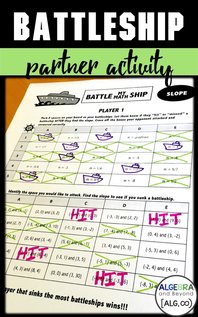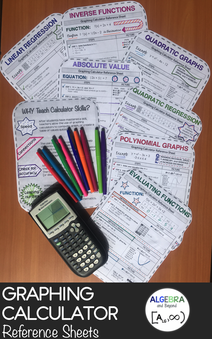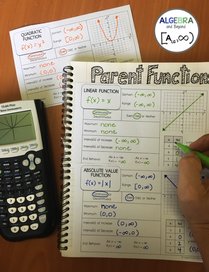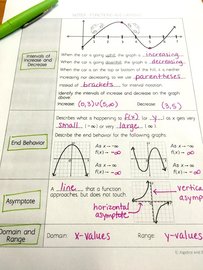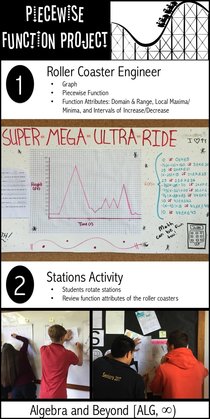 When I first started teaching, I was given a textbook that included homework problems and an answer key. I thought, this will be so easy! Little did I know the challenges that awaited me when it came to checking homework assignments. What Didn't Work: I'd teach a lesson, assign homework, and then spend the next day reading off the answers to my students so they could mark which were incorrect. However, two major roadblocks stood in the way of this seemingly straightforward process:
What Does Work: The first thing I realized was that my students need to SEE step-by-step how each problem was solved. This simple shift had several benefits:
Implementing the Method: To streamline this process, I introduced a rule: no red pens or markers during homework. This way, when it's time to check assignments, students can grab a red pen or marker, strike through wrong answers, and jot down their missteps. I grade based on completion because learning from mistakes is all part of the math process. Checking for Homework Completion: To avoid taking up instructional time, consider these options:
In Conclusion: By embracing these changes, the classroom dynamic shifted. Valuable time was saved, immediate feedback was provided, and mistakes became stepping stones to success. Projecting solutions on the board transformed the learning experience, making it engaging and interactive. This method has also made it easier for me to manage grading, ensuring timely feedback and a more productive use of class time. Give these tips a try, and watch how your classroom efficiency improves!
6 Comments
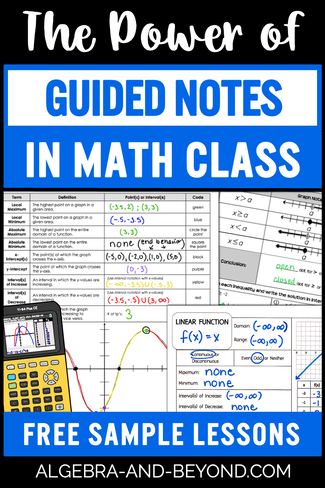 Let's talk about instructional methods in math class. Every educator has their own approach, and you know what? That’s great! There's no one right way to do it! It's all about finding what works best for you and your students. Maybe you already have a method that works, maybe you’d like to tweak it, or maybe you are looking for something different. So, I want to share my journey with you – why my "old" method just wasn't cutting it, and how my "new" approach has totally transformed my classroom. HOW I USED TO TEACHAlright, let's rewind a bit and take a peek at what I used to do in my math classroom, and why, honestly, it just didn't work. So, picture this: the trusty ole' textbook. Now, don't get me wrong, textbooks have their place, but relying solely on them for teaching? It was extremely boring. I found myself endlessly rewriting what was already there in the book, and let's be real, it was about as thrilling as watching grass grow. Plus, all that writing and note-taking? It was sucking up valuable time that could've been spent making math exciting with review activities, games, projects, and all the fun stuff! And don't even get me started on the struggle of keeping absent students in the loop. Without any notes or guidance from class, they were left stranded, trying to piece together what they missed. It just wasn't fair to them, or to me, frankly. HOW I CHANGED MY WAYSNow, let me tell you about the game-changer: guided notes. I started creating them when I was finally fed up with the textbook. Here is what I learned since implementing them in my classroom:
4) Increases Engagement: Guided notes provide the structure and scaffolding my students needed to really grasp the concepts. This naturally keeps students focused and actively involved. 5) Aligned to Standards: They are standards-aligned, too! Because sometimes textbooks just have too much extra stuff. That's right, I can easily adjust or create guided notes to fit whatever standards or objectives we are tackling. Flexibility at its finest. 6) Absent Students: Oh, and remember those absent students? No worries anymore. With completed notes readily available, they can catch up on what they missed without skipping a beat. It is a win-win for everyone. 7) Teach with Confidence: Last but certainly not least, this method helps me teach with confidence. I feel more organized and reassured that my students will comprehend the content I’m teaching in each lesson. Above, I pointed out some of my favorite outcomes from using this teaching style, but the list goes on! WHAT RESEARCH SAYS ABOUT GUIDED NOTESDo you want further information on guided notes? Here are links to articles that support the use of guided notes as a successful teaching method: ARE YOU AN ALGEBRA 2 TEACHER LOOKING FOR GUIDED NOTES?If you are, then you’re in luck! I have created lessons with guided notes for every Algebra 2 concept. You can find all the lessons, units, learning targets, activities, assessments, and more by clicking on the image below: Want to try a few samples? Access my FREE resource library where you can download a few sample lessons AND activities for your math class! READ WHAT EDUCATORS SAY ABOUT MY CURRICULUMAttention to detail is incredible. Multiple opportunities for students to practice skills. Highly recommend product. –Betty M.
Very comprehensive. Videos and notes for so many topics. Very helpful to provide students with an asynchronous resource when not available for class. –Seretha P. This goes above and beyond my wildest expectations! This is so beautifully and thoroughly crafted. Great work! You have saved me hours of frustration. –Dorothy B. I have only one regret and that is that I wish had purchased this curriculum earlier. It is an amazing resource tool. –Maria J. My students found this resource very useful and accessible for their learning. It was easy to integrate with our usual resources & addresses several topic directly that are often missed in other resources. –Riana H. Good resource to use as a whole or to supplement your curriculum. Nicely laid out and easily insertable into your lessons. –Gerri D.
WHY have students work with a partner? Just like everyone wants a best friend, because life is better when it's shared with someone else, most students want to work with a partner in math class. And there are many benefits to working together:
And on top of all the above, students are going to level up their understanding of math! And, let's face it, that's the main goal! HOW can students work in pairs? Of course, if you were to ask students about their ideal way of teaming up, you’d probably get responses like, "I'll do the odd-numbered problems, and my partner can do the even ones." BUT, that’s NOT at all the approach I have in mind for working in pairs. You need carefully crafted activities that are set up for students to team up and tackle their own challenges. Well, you’re in luck! I have a few activities that meet this criteria. Each of them will help improve your students' math skills! #1 My ever popular Battle My Math Ship Games! IMO this is THE BEST PARTNER ACTIVITY ever! Students take turns attacking spaces and sinking ships, just like the original game of Battleship. You can print and go or have your students play digitally. Over 100 different math concepts to choose from, so you can find the exact review for your students. Perfect to enhance engagement and reduce math anxiety! Educator's Review: If you aren't using the Battle My Math Ship resources yet...you are ABSOLUTELY missing out. The students love the game - and it evens the playing field a bit for struggling students as there is a little luck involved. My students wish there was math battleship for every topic they study. Zero prep (make a copy) and go. – Allyson B. Learn more about this game and find out what educators are saying HERE. #2 Take the hassle out of checking math problems with these Partner Check review activities. These user-friendly, printable worksheets are designed to promote independent learning, reinforce math skills, and give students instant feedback. Perfect for building confidence and sharing different perspectives! You can learn more about these dynamic activities HERE. What educators are saying about these activities... Wow! My students were so engaged. Each wanted to be the first to get them all right. I love the way they excitedly continued to the end, celebrating each success with fist pumps and "I rocked this!" Thanks for a great resource. – Jeana H. I really enjoyed using this activity with my students. I like for them to work in partners to practice the skills we learn, but I find that sometimes one person does all the work while the other just copies/listens to the other. This activity was a great way for both people to be actively engaged in the process of practicing skills. – Danielle O’Haren These "sets" are great! I love that there are several options in each pack--single student, partners, and triples! These are favorites with my students and good conversations arise when the answers are not the same. My students are enjoying this activity and I hope to have all of these in my tool box. – E.G. #3 These no-prep, iStep activities are designed similar to iMessage. Each sheet includes a problem to solve and text bubbles for verbal steps and student work. Great activity for partners. Perfect review activity for after an assessment or early finishers! Perfect for improving communication skills and social skills! You can learn more about these activities HERE. #4 These Mathbook activities are designed similar to Facebook. Each sheet includes space for a student profile picture, name, date, emoji, an “I can” statement, a math problem to solve, and space for the teacher or a peer to put their profile picture and write a positive comment. Perfect for improving communication skills and social skills! You can learn more about these activities HERE. Learn about some other FUN partner activities …
Top 3 Strategies for Effective Partner Work in the Middle School Math Classroom from Lauren Fulton Math Math Partner Games, Spring Puzzles, and End of Year Activities for 3rd, 4th, and 5th from Math Tech Connections 4th and 5th Grade Math Partner Games from Jennifer Findley Speed Dating from Teaching High School Math
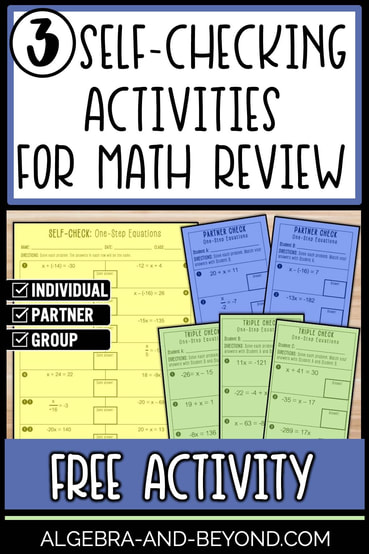 Hey there, mathtastic educators! I'm always on the lookout for fresh ways to support you all, and guess what? Your input has sparked some fantastic ideas that I'm super excited to share. I ran a giveaway over at the Algebra and Beyond Community where I threw in a survey to pick your brains. Turns out, there is a need for review activities that your students can work on independently, giving the ability to check answers quickly. Now, here's the interesting part: while the digital world is overflowing with self-check options, I noticed a gap in the PRINTABLE department. So, I put on my thinking cap, did a bit of brainstorming, and voila! I've come up with a resource that not only serves as a rock-solid review but is also self-checking. The best part? You're getting not one, not two, but THREE resources in one! Yup, handouts for individual, partner, or groups of three, each with different problems but those golden matching answers! Ready to dive in and make review a breeze? Let's do this! Above are the results from the teacher survey. I've included the Top 5 requested resources by teachers. Other resources needed, but not listed above, include graphic organizers, assessments, guided notes, lessons, homework, and instructional videos. WHAT'S INCLUDED IN THESE ACTIVITIES?These user-friendly, printable resources are designed to promote independent learning and reinforce essential math skills. They are the perfect addition to your math toolkit, ensuring that your classroom remains dynamic and adaptable to individual learning needs. THREE ACTIVITIES INCLUDED:
Included with each activity are the corresponding answers. Each activity features different math problems, guaranteeing you can make the most out of each one. Let's explore the versatility of these review activities and how you can seamlessly incorporate them into your classroom:
WHY ARE THESE ACTIVITIES HELPFUL?Instant Feedback: Each activity includes self-check mechanisms, allowing students to instantly assess their understanding and correct mistakes. This promotes a growth mindset by encouraging active learning and independent problem-solving. Print-and-Go Convenience: With printable PDF format, you can easily print as many copies as needed. Simply download, print, and distribute. Promotes Independence: These activities encourage students to take charge of their learning process. By checking their own work, students become more independent learners, encouraging a sense of responsibility. Encourages Critical Thinking & Reflection: Self-checking activities often involve problem-solving, critical thinking skills, and reflective learning. Students are not just calculating answers but also evaluating the correctness of their solutions, promoting a deeper understanding of mathematical principles. Flexible Learning Pace: Students can progress at their own pace with self-checking activities. Those who grasp concepts quickly can move ahead, while others may take more time to review and reinforce their understanding without feeling rushed. Reduces Teacher Workload: With self-checking activities, teachers can focus more on guiding students and addressing individual needs rather than spending excessive time on grading. This can be especially beneficial in classrooms with limited time and resources. Long-Term Retention: The combination of immediate feedback, independence, and engagement contributes to better retention of mathematical concepts. Students are more likely to remember and apply what they've learned when they actively participate in the self-checking process. DO STUDENTS ENJOY THESE ACTIVITIES?Here are some reviews I've received about these activities: Wow! My students were so engaged. Each wanted to be the first to get them all right. I love the way they excitedly continued to the end, celebrating each success with fist pumps and "I rocked this!" Thanks for a great resource.- Jeana H. I used this to keep students focused while I pulled some for small group instruction. The fact that they could check themselves without interrupting my small group made everything run smoothly. Thanks for a great resource! – Anissa F. This was a great resource for my students to practice their skills of systems of equations. Students loved how they could work at their own pace and self-check! – Ms. Novak in the Middle This was a great way to provide some review of what my students learned in 5th grade. They loved working together to get the correct answers. It's much more engaging than working on their own. – Christine N. I really enjoyed using this activity with my students. I like for them to work in partners to practice the skills we learn, but I find that sometimes one person does all the work while the other just copies/listens to the other. This activity was a great way for both people to be actively engaged in the process of practicing skills. I also like the option for having three people in a group or the option of having students work independently with the same setup! I will definitely be looking into other skills with this same Self-Checking Options. – Danielle O. Can’t wait to get your hands on the Self-Check Activities?! No problem, I have one waiting for you for FREE!!! Are you already convinced that your students will LOVE this activity?! Awesome!!! I've created these activities for Grades 6, 7, 8, and Algebra 1. You can find ALL the Self-Check Activities HERE.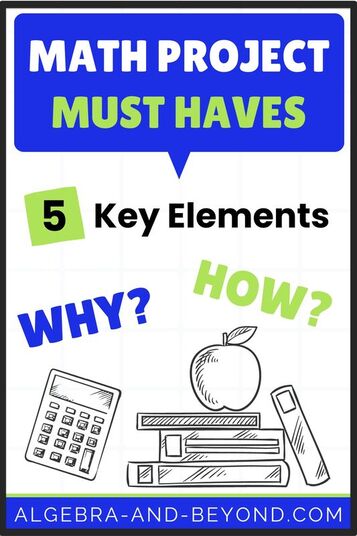
If you’ve visited my website before, you know I’m all about real-world math projects that come straight from my classroom. Today, I’m pulling back the curtain to reveal my process of creating these projects from the beginning to the end. That’s right, I’ll explain my FIVE “must haves” for designing math projects. This blog post is your access to fresh ideas and handy tools, so you can create your own math projects for your classroom! Let the creativity begin…
If you want ALL the Math Project Must Have details via video and download the FREE notes and example project, CLICK HERE.
Real World Connection
Why does this matter? By exploring the common question of “how does math apply to real life?”, we are naturally unlocking student interest. Connecting the math they are learning to everyday situations makes it easier for them to understand and keeps students engaged because it’s relatable. Plus, real-world projects are training for the future. When students create projects that mirror actual situations they might encounter later in life, they are getting a sneak peek into the challenges and problem-solving they’ll face. Student Handout Why do students need this? Knowing the objectives and directions for a math project is like having a roadmap for a journey. It gives students a clear sense of what needs to be done and the knowledge and skills they will demonstrate along the way. Objectives – helps students grasp the purpose of the project Directions – act as a guide, explaining the steps to take to complete the project Alignment – ensures that the project accurately matches your standards A handout not only helps students stay organized, but also keeps them focused on the key aspects and assists them to work more efficiently. Rubric What’s the purpose of this? A rubric breaks the project down into bight-sized pieces, making it easier to understand the expectations and levels of proficiency. It also allows you to weight different aspects of the project by importance. Example You may be wondering if having an example project is really necessary? The answer is a resounding YES! Let me explain why. I was filling in for another teacher and the students were starting a new project. Quite a few of them wished they had an example to look at, so they knew what a finished project would look like. That got me thinking–this visual aid is gold for students, perhaps even more important than the rubric. I’ve always made it a point to include an example project for my students because, let’s face it, student directions and a rubric don’t always paint a full picture. A visual example though? Now that’s the game-changer students need to create an amazing project. Answer Key Let’s face it, answer keys are the holy grail for math teachers for efficiency and making grading student work a breeze. It’s also crucial to be able to check students’ answers as they work through a project. Designing projects that facilitate unique answers for every student is my goal, however, this makes it tricky to create an answer key. I have a few tips on how to easily create answer keys that can be used to quickly type in each student’s unique answer to see if they are correct.
I’ve revealed my FIVE key elements for creating a quality math project and why they’re game changers. Are you excited to learn HOW you can add all of these elements into your own projects? Mathtastic! I’ve got a FREE video session and downloadable handouts waiting for you, so you can take your projects to the next level! Let’s make learning math a whole lot more exciting!
Don’t have time to make your own math projects? I totally understand, that's why I've got you covered! Check out my favorite real world math projects by clicking on this image:
|
Hello there,
|


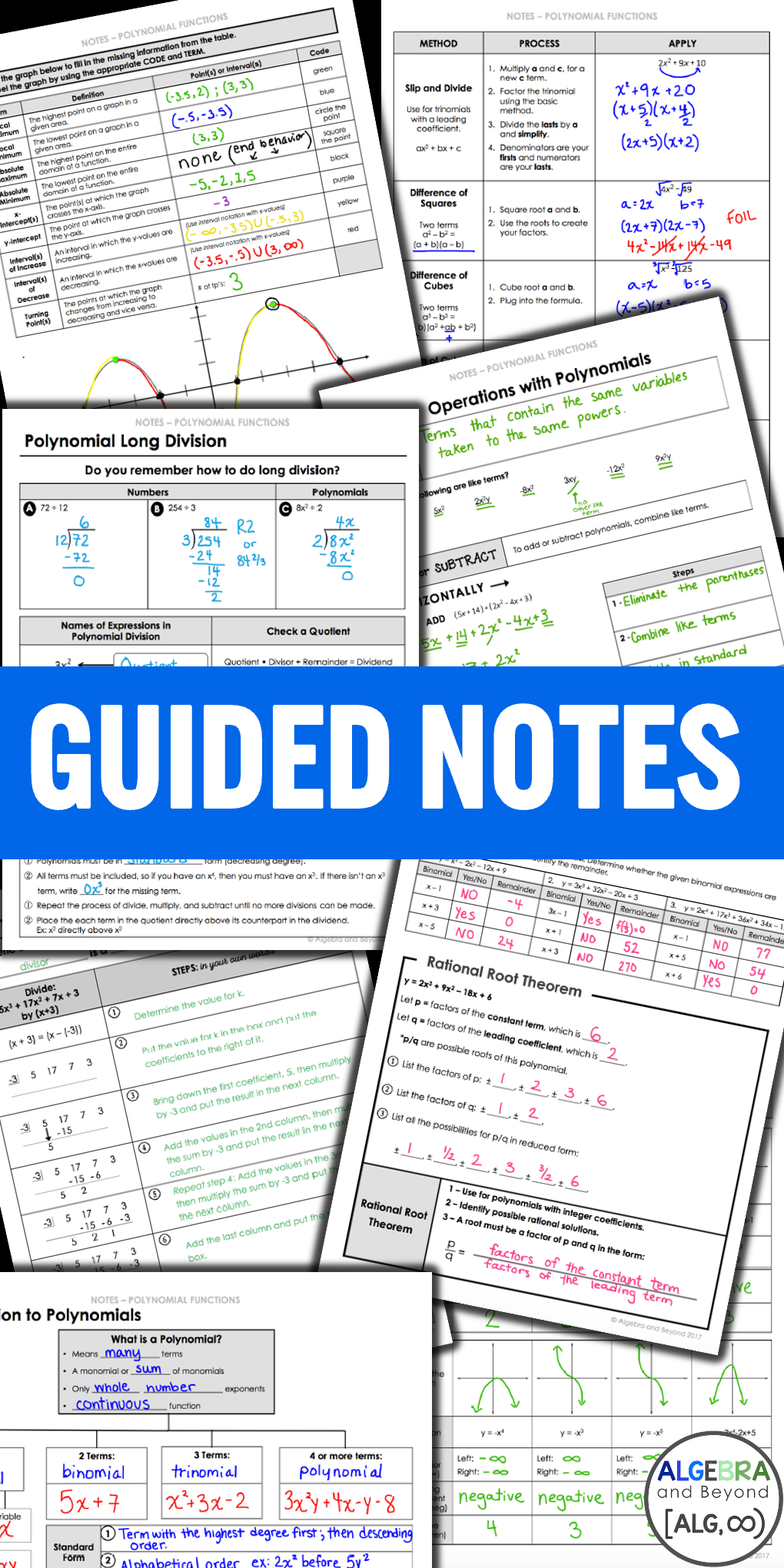
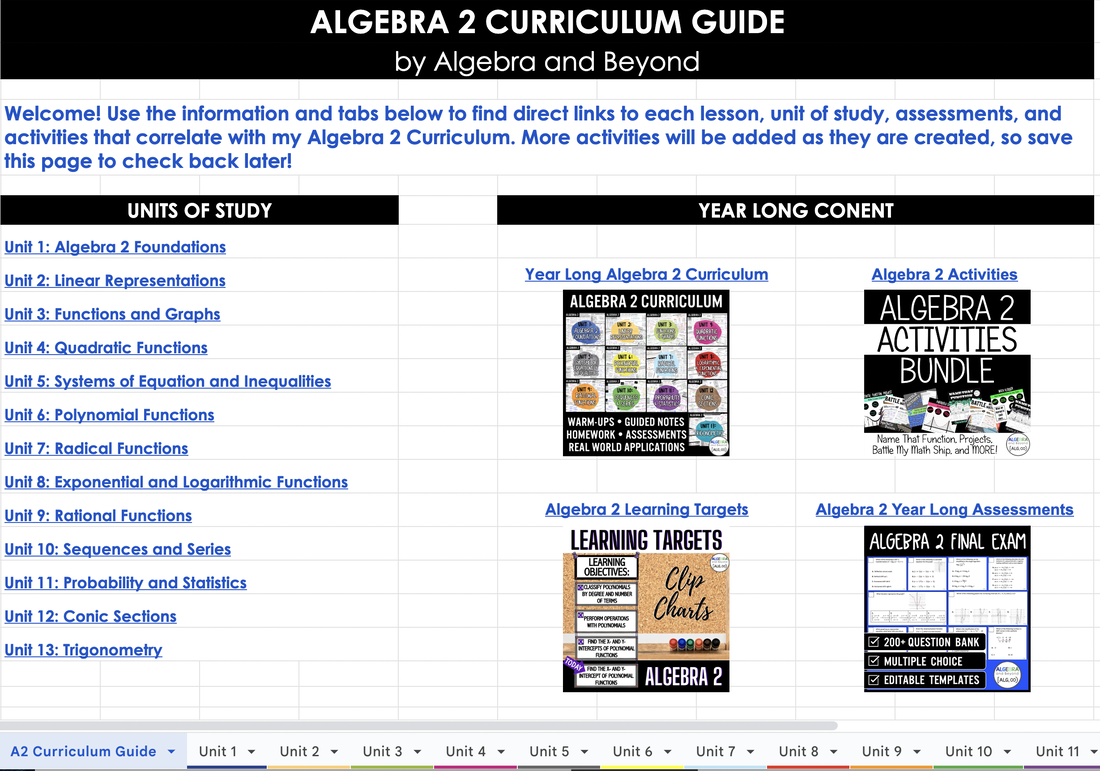
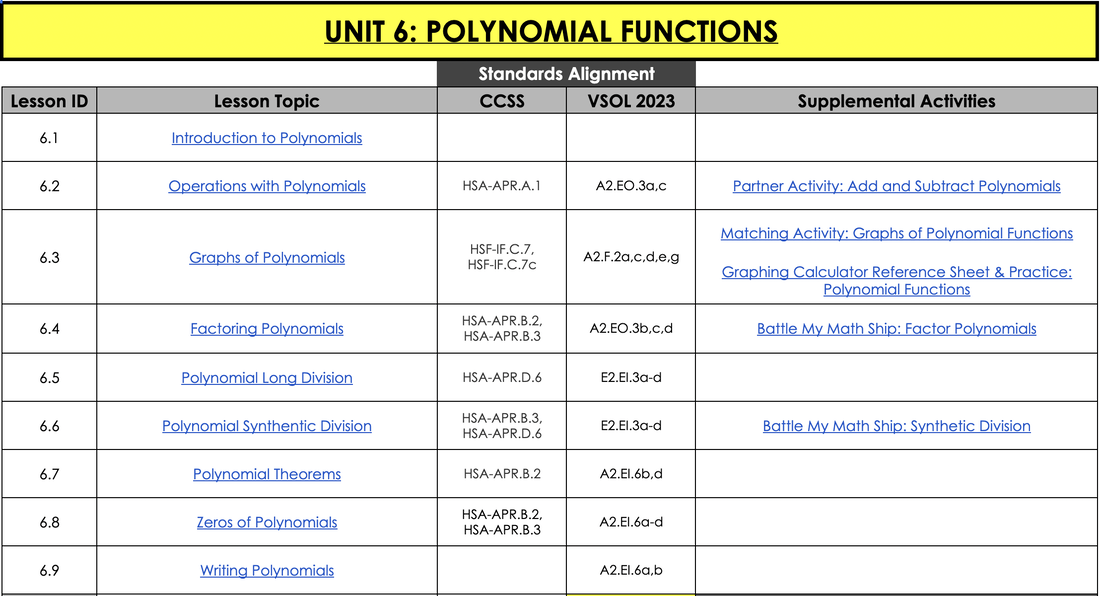
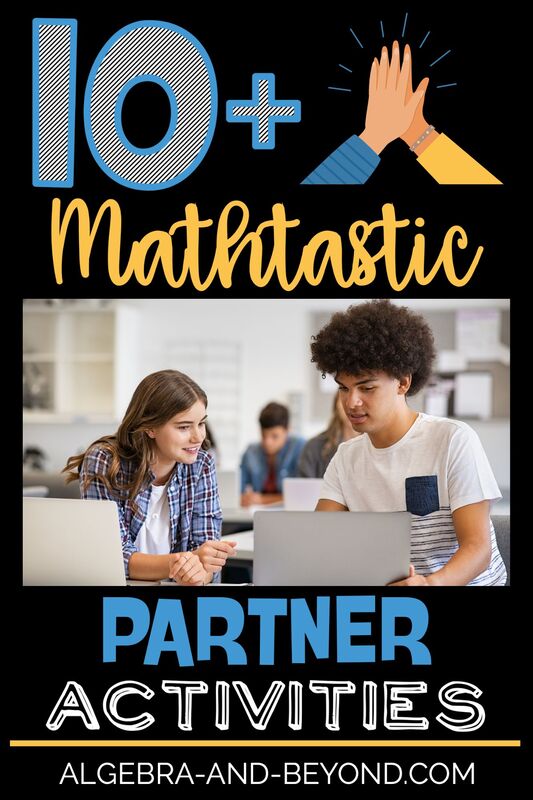
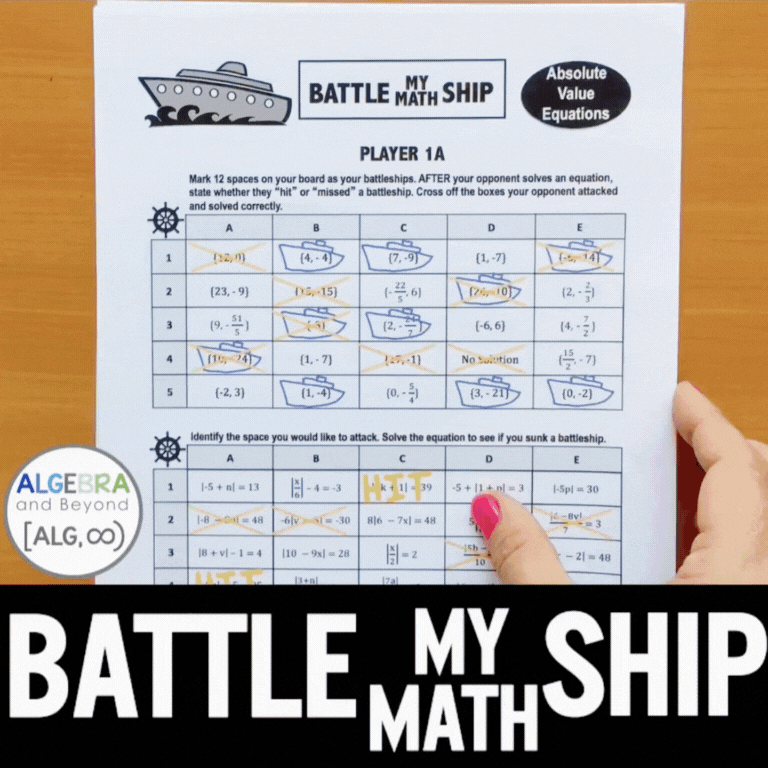
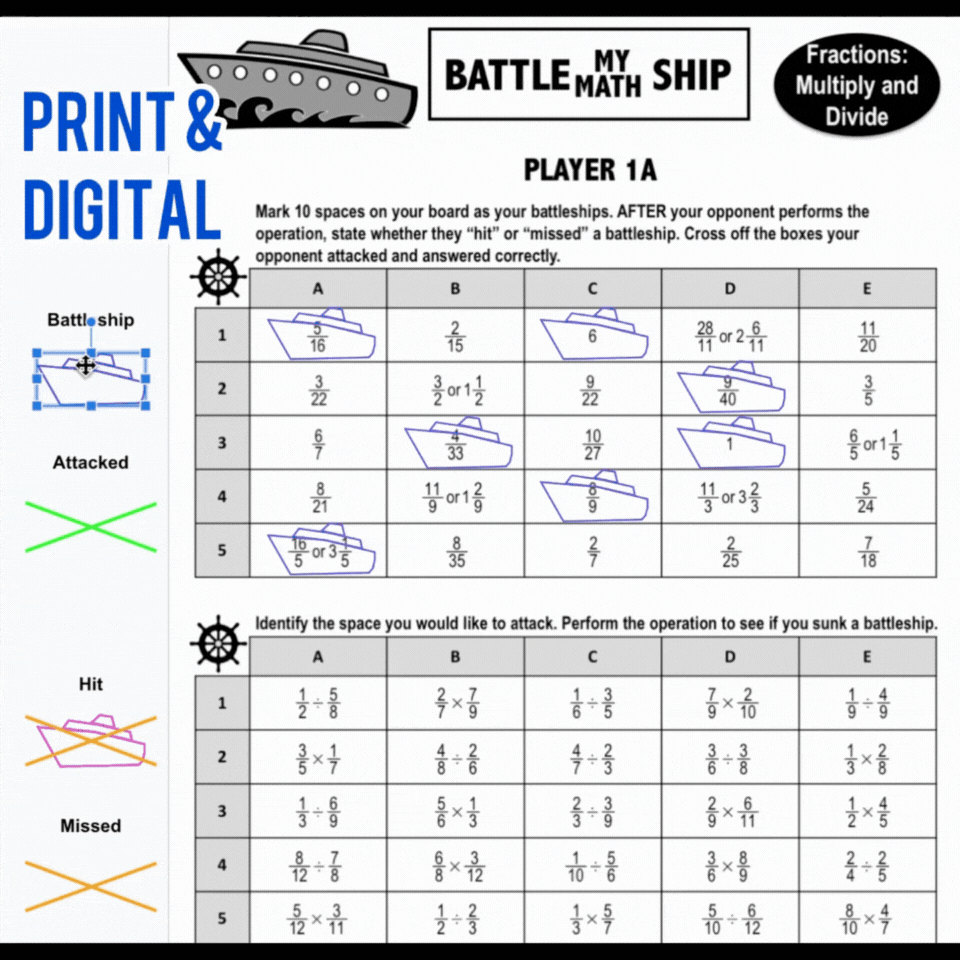
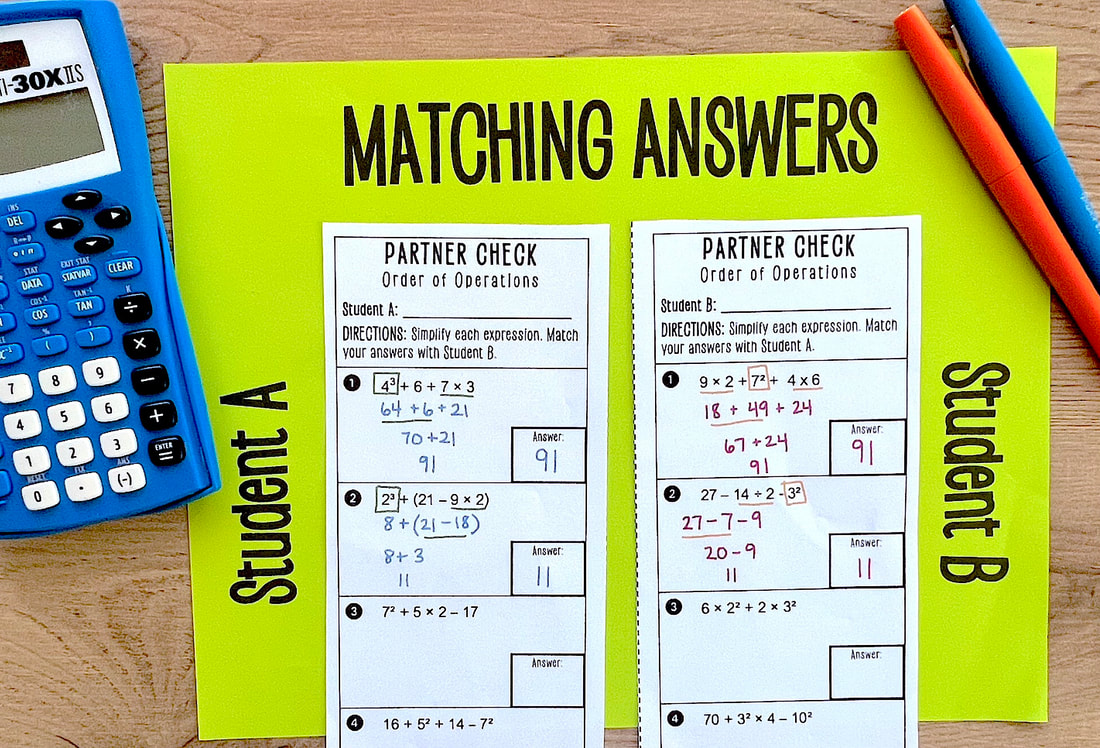
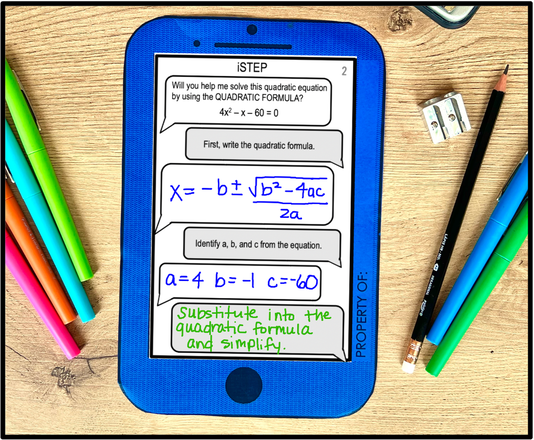
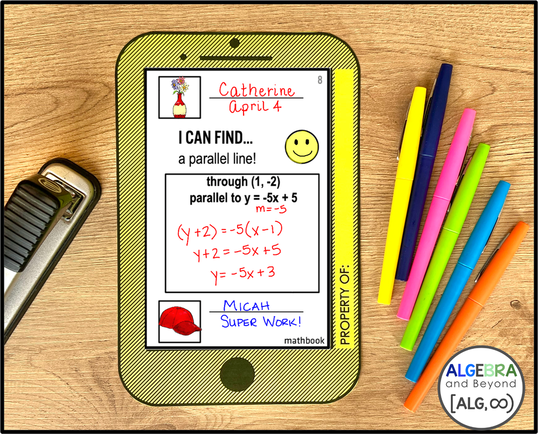
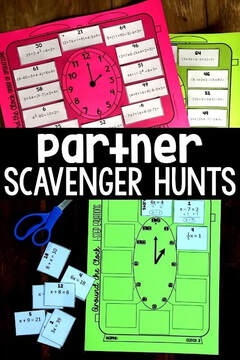
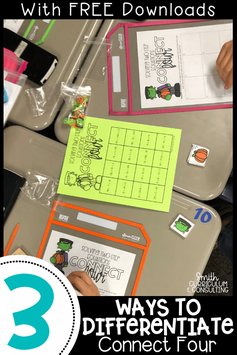
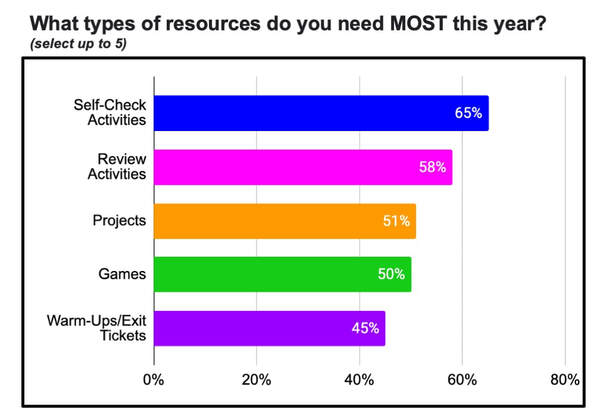
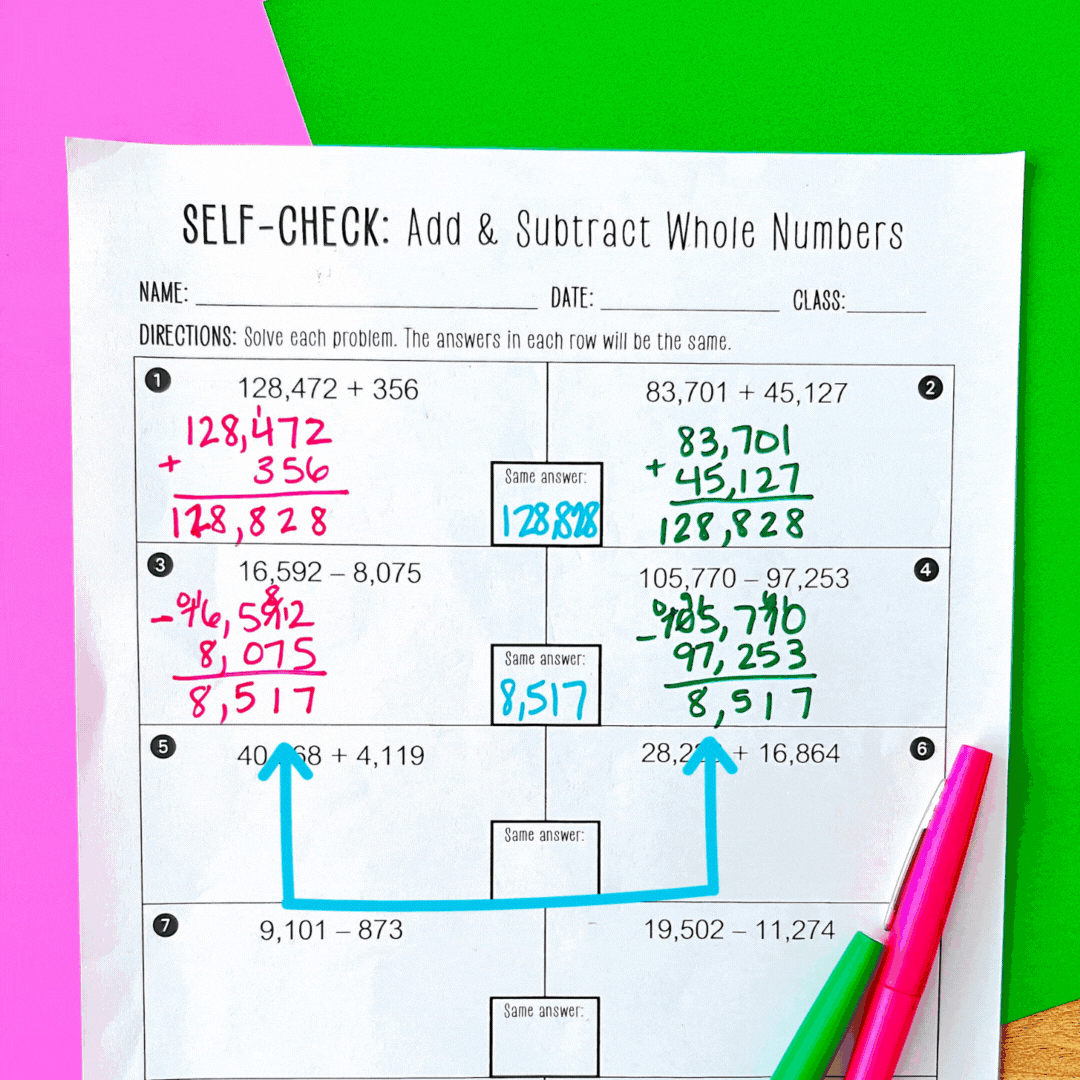
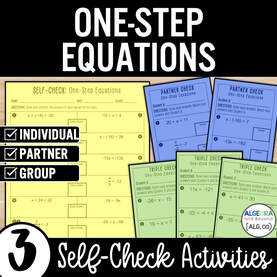
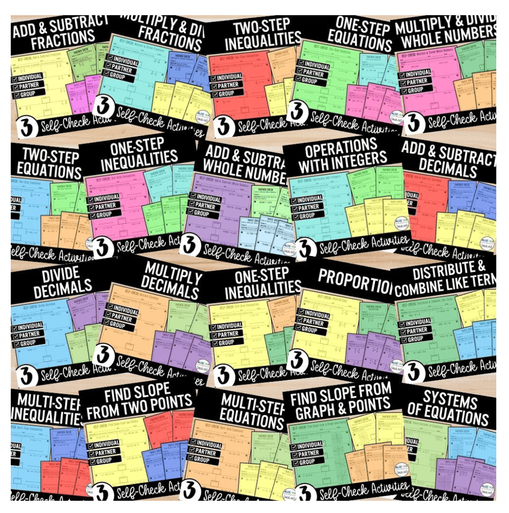

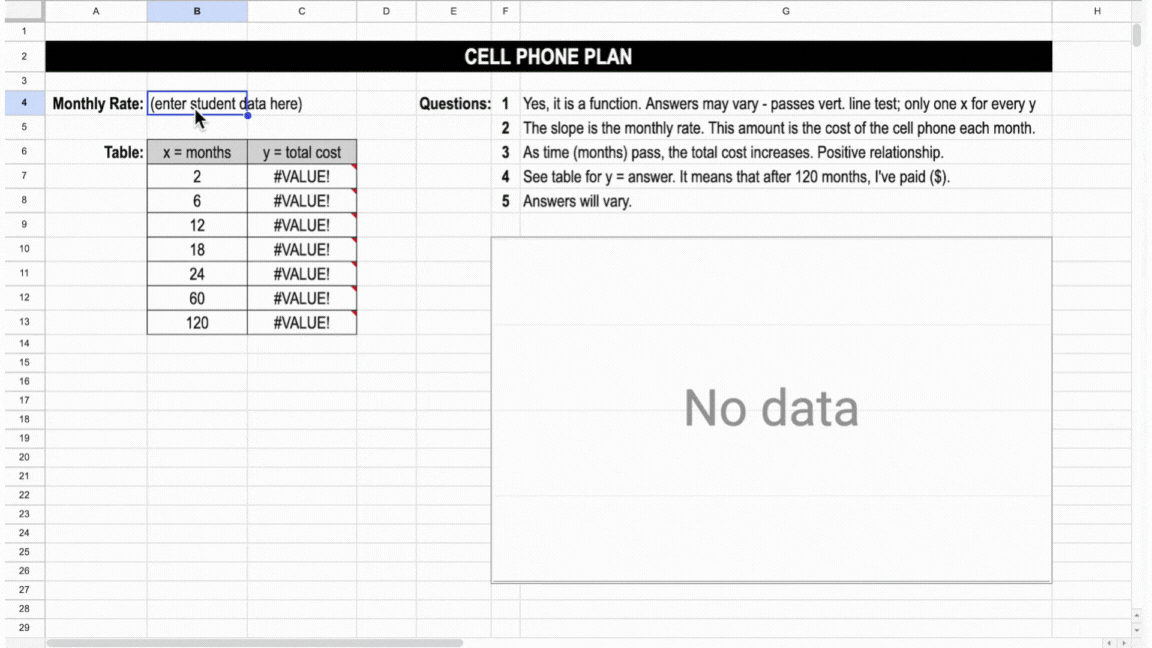
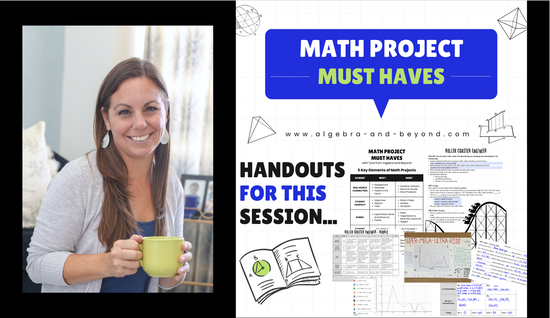
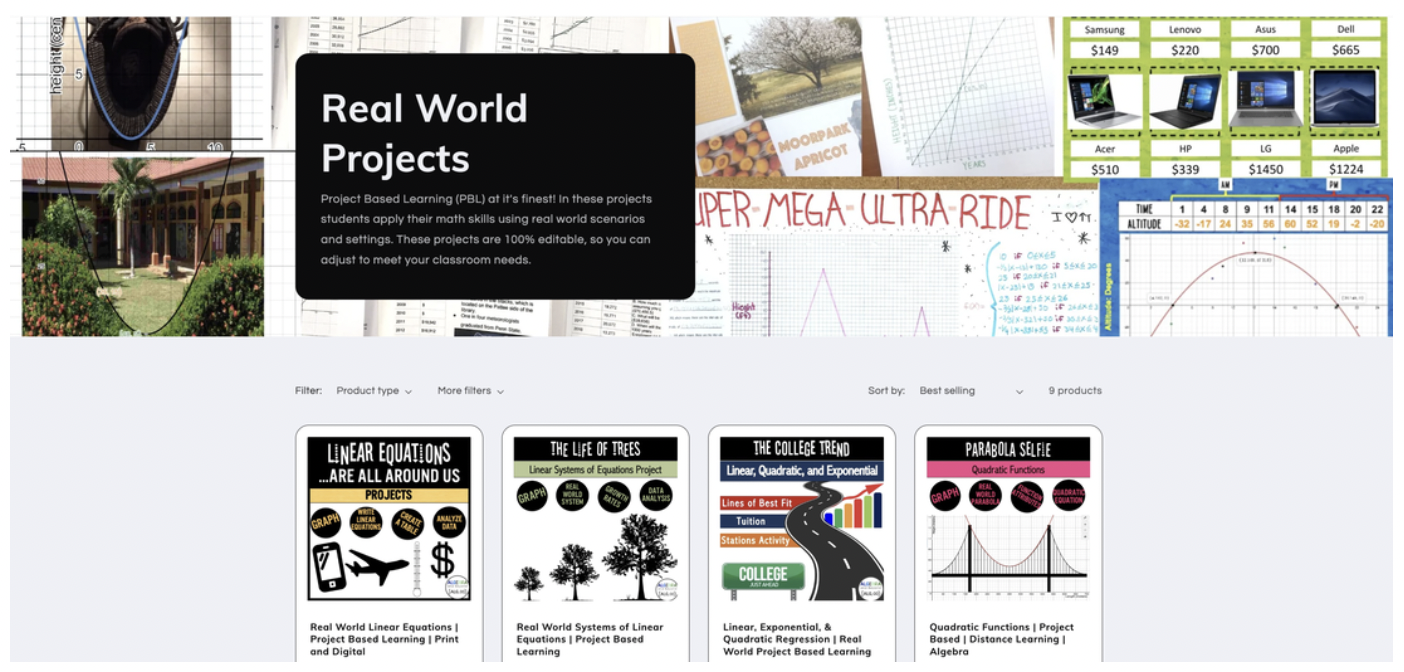





 RSS Feed
RSS Feed

